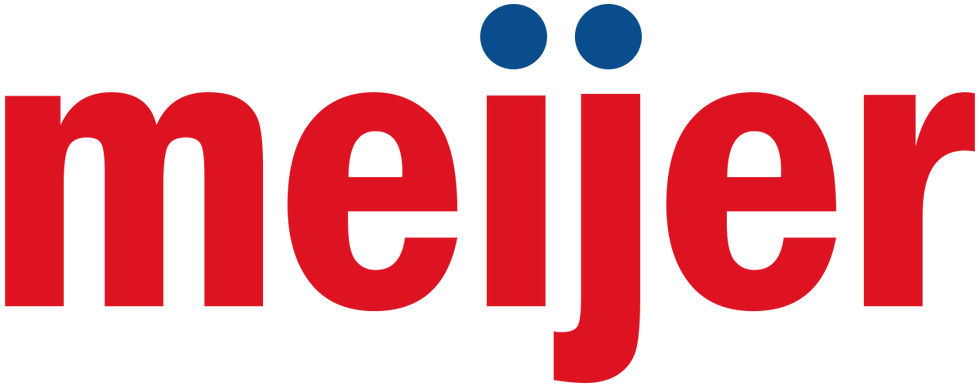Meijer Donates $1M to the Council of the Great Lakes Region to Clean Up Midwest Lakeshores
- The Cleanup Team
- Apr 21, 2022
- 4 min read
FOR IMMEDIATE RELEASE:
APRIL 20, 2022
Retailer’s participation in Great Lakes Plastic Cleanup Program to focus on beach cleanup, pollution awareness and education.
GRAND RAPIDS, Mich. – Meijer announced today a $1 million donation to the charitable arm of the Council of the Great Lakes Region in the United States – the CGLR Foundation – to clean up Midwestern beaches and waterways, and ultimately inform the public about the scale of the plastics pollution problem in the Great Lakes and actions to take to end plastic waste and litter.
“We are lucky to live near the beautiful Great Lakes, which not only provide immense economic value to the region, but they also act as a hub for recreation, travel and biodiversity. It’s our responsibility to protect them,” said Vik Srinivasan, Senior Vice President of Properties and Real Estate. “These lakes represent a fifth of the world’s surface freshwater, and our partnership with the Council of the Great Lakes is the perfect opportunity for Meijer to be hands-on in the protection of our local waterways.”
The Great Lakes are the largest surface freshwater system in the world, and models estimate that 22 million pounds of plastic litter enter them annually. An estimated 80 percent of the litter that washes up on those shorelines is plastic.
The $1 million donation from Meijer to the CGLR Foundation will fund the purchase and use of three innovative litter capture and cleanup technologies at more than a dozen locations in the Midwest. They’re part of the expansion of the Great Lakes Plastic Cleanup’s plastic capture and recovery effort, an initiative that started in 2020 by the Council of the Great Lakes Regional and Pollution Probe:
● BeBot: Eco-friendly, remote-controlled electric (solar and battery powered) beach cleaning robots – that clean 32,000-square-feet per hour – will be deployed to busy beaches in Michigan, Indiana, Ohio and Wisconsin to rake through the sand without altering the beach environment, and collect plastic litter and other waste – bottles, cans, food wrappers, cigarette butts – in a basket for disposal and recycling.
● Pixie Drone: Eco-friendly, remote-controlled water drones – that can collect up to 200 pounds of material per use – will navigate through marinas and other waterways in Michigan, Indiana, Ohio and Wisconsin to collect plastic litter and other waste debris floating on the surface of the water. It will also collect other water data, such as temperature, pH, salinity, turbidity and dissolved oxygen.
● Gutter Bins: Gutter bin stormwater filtration systems will be installed at select Meijer supercenters. The gutter bins will capture and prevent trash, debris, microplastics and other harmful stormwater pollutants from flowing into nearby waterways. Each bin captures hundreds of pounds of pollution per year.
“We are very excited to be working with Meijer to expand the GLPC in the United States in 2022, the 50th anniversary of the United States-Canada Great Lakes Water Quality Agreement,” said Mark Fisher, President and CEO for the CGLR. “Meijer has had a long-standing commitment to protecting the environment and this investment in the GLPC will reduce plastic pollution and keep this globally significant natural resource beautiful and clean for generations to come.”
Meijer and the CGLR will lead these cleanup projects at the local level working with a variety of community, state, and environmental NGO partners, including the Ohio, Michigan and Wisconsin Sea Grant organizations, the Indiana Department of Environmental Management, the University of Wisconsin-Oshkosh, and Pollution Probe. Each project will collect, sort, weigh and itemize waste materials to better inform – and educate – the public, regional companies, and policymakers at all levels on the problem and the solutions.
In addition to sustainability partnerships and initiatives currently underway, Meijer continues to prioritize its longstanding commitment to the environment by integrating sustainability into daily operations. This includes addressing carbon and waste reduction, recycling, offering local and sustainable products and continuing responsible growth.
About Meijer: Meijer is a Grand Rapids, Mich.-based retailer that operates 258 supercenters and grocery stores throughout Michigan, Ohio, Indiana, Illinois, Kentucky and Wisconsin. A privately-owned and family-operated company since 1934, Meijer pioneered the “one-stop shopping” concept and has evolved through the years to include expanded fresh produce and meat departments, as well as pharmacies, comprehensive apparel departments, pet departments, garden centers, toys and electronics. For additional information on Meijer, please visit www.meijer.com. Follow Meijer on Twitter at twitter.com/Meijer and twitter.com/MeijerPR or become a fan at www.facebook.com/meijer.
About Council of the Great Lakes Region: The Council of the Great Lakes Region is a binational network of organizations comprised of: (1) the Council of the Great Lakes Region USA, an Ohio-based trade association; (2) the CGLR Foundation, an Ohio-based public charity; and the Council of the Great Lakes Region Canada, a not-for-profit corporation. Together, these organizations, collectively referred to as the Council of the Great Lakes Region, are leading a new era of economic growth, environmental protection, and individual well-being by building the region’s long-term competitiveness and sustainability today. For additional information, please visit https://councilgreatlakesregion.org/ and https://www.greatlakesplasticcleanup.org/. Follow CGLR on Twitter at twitter.com/CGLRGreatlakes and the GLPC on Twitter at twitter.com/GLPCleanup.
About the Great Lakes Plastic Cleanup: The Great Lakes Plastic Cleanup, spearheaded by the Council of the Great Lakes Region and Pollution Probe with support from a wide network of funders and collaborators, is the largest initiative of its kind in the world, using innovative plastic capture technology to quickly capture and remove plastics and other litter from Lake Ontario to Lake Superior and everywhere in between. Through research, outreach and education, the Great Lakes Plastic Cleanup is gathering data on litter entering our waterways and identifying how government, industry, and consumers can work together to reduce, reuse and recycle material waste. To learn more, visit www.greatlakesplasticcleanup.org.

Comments